More Batteries or Solar Panels: Which Is Better for Your Solar Energy System?
Are you considering building a solar energy system but need to decide whether to invest in more batteries or solar panels? Making this decision can be challenging, as both options come with their own set of advantages and disadvantages. Ultimately, choosing between more batteries and solar panels depends on your specific needs and circumstances. In this article, we will explore the benefits and considerations associated with each option, helping you make an informed decision for your solar energy system.
The Importance of Batteries and Solar Panels
Before we dive into the specifics, let’s first understand the roles of batteries and solar panels in a solar energy system. Solar panels, also known as photovoltaic (PV) panels, capture sunlight and convert it into electricity. They are the primary components responsible for generating solar power. On the other hand, batteries store excess solar energy generated by the panels for later use, ensuring a continuous power supply even when the sun is not shining.
Advantages of More Batteries
Adding more batteries to your solar energy system offers several advantages. Firstly, it increases your energy storage capacity. With more batteries, you can store more solar energy, allowing you to power your home or business even during periods of low solar generation or at night. This can enhance energy independence and reduce reliance on the traditional electrical grid.
Secondly, additional batteries provide a backup power source in case of power outages. During blackouts or emergencies, your batteries can supply electricity to essential appliances and keep your home running. This backup functionality is precious for those living in areas prone to power interruptions or natural disasters.
Disadvantages of More Batteries
While more batteries offer benefits, there are also some considerations to consider. One of the main drawbacks is the increased cost. Batteries can be a significant investment, and adding more of them to your solar energy system can raise the overall expenses. Additionally, batteries require regular maintenance to ensure optimal performance and longevity. This includes monitoring the battery’s health, checking the electrolyte levels, and replacing aging units when necessary.
Moreover, the physical space required for additional batteries should be taken into account. Batteries are bulkier than solar panels and need a suitable storage location. If you have limited space available, accommodating more batteries might become challenging.
Advantages of More Solar Panels
Alternatively, adding more solar panels to your system also offers several advantages. The primary benefit is increased energy production. With additional panels, you can generate more electricity from the sun’s rays, reducing your reliance on the grid and potentially even selling excess power back to the utility company. This can result in lower energy bills and more significant financial savings in the long run.
Moreover, if you already have sufficient battery capacity to store the energy you generate, adding more solar panels may be more cost-effective than investing in additional batteries. It allows you to maximize the utilisation of the energy produced by your system without incurring the extra expenses associated with batteries.
Furthermore, more solar panels can help offset your carbon footprint by generating clean, renewable energy. Increasing your solar capacity contributes to a greener environment and reduces reliance on fossil fuels.
Disadvantages of More Solar Panels
While more solar panels have advantages, there are also a few considerations to consider. One potential drawback is the space required for installation. Solar panels need ample rooftop or ground space to capture sunlight effectively. If your property has limited space or is shaded by surrounding buildings or trees, adding more panels may not be feasible or efficient.
Additionally, the cost of installing and maintaining additional solar panels should be taken into account. Although the cost of solar panels has decreased over the years, it still represents a significant investment. You must assess whether the potential energy production and savings outweigh the initial expenses.
Factors to Consider
When deciding between more batteries or more solar panels for your solar energy system, several factors should be considered:
- Energy Needs: Assess your average daily energy consumption and determine whether your current system meets those needs. Adding batteries might be more beneficial if you frequently experience power outages or require a continuous power supply. Expanding your solar panel capacity could be a wiser choice if your energy demands are already met.
- Budget: Consider your budget and evaluate the costs associated with each option. Determine how much you are willing to invest upfront and analyze the long-term financial implications.
- Space Constraints: Evaluate the available space on your property for installing additional solar panels or storing more batteries. Ensure that you have adequate space to accommodate your chosen option.
- Backup Power: Assess the importance of having backup power during blackouts or emergencies. Adding more batteries can provide the necessary backup functionality if an uninterrupted power supply is crucial.
- Environmental Impact: Consider your environmental goals and the desire to reduce your carbon footprint. Both batteries and solar panels contribute to sustainability but in different ways. Determine which option aligns better with your environmental priorities.
Finding the Perfect Balance
Assessing your circumstances is crucial to find the perfect balance between batteries and solar panels for your solar energy system. Consider the above mentioned factors, conduct thorough research, and consult with solar energy professionals to guide you through the decision-making process.
Every solar energy system is unique, and what works for one person may not work for another. The decision should be based on a comprehensive evaluation of your energy needs, budget, space constraints, and environmental aspirations. Both options offer distinct advantages and disadvantages, and the best solution lies in finding the perfect balance that suits your specific requirements.
Conduct thorough research, consult with experts, and consider the long-term implications before making your final decision. A well-designed solar energy system tailored to your needs can provide clean and sustainable power for your home or business.

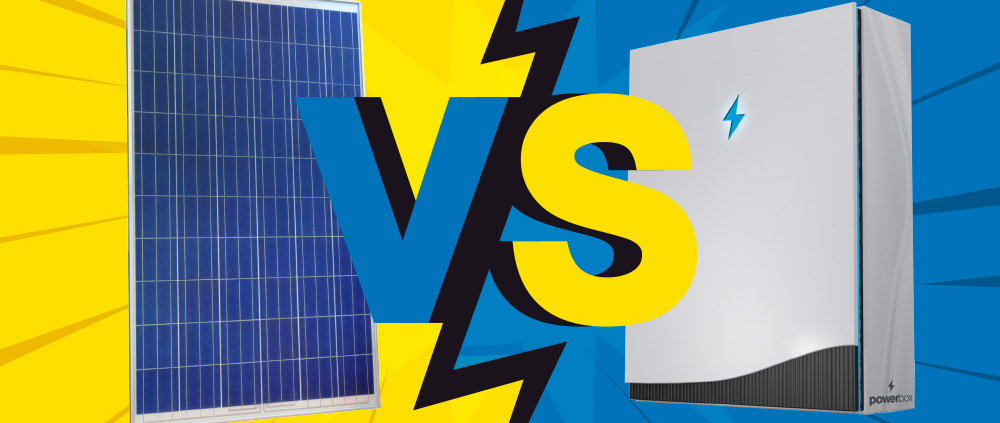 Solar Battery Group
Solar Battery Group

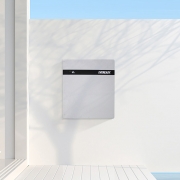 Eveready® Energy Vault
Eveready® Energy Vault Solar Battery Group
Solar Battery Group Solar Battery Group
Solar Battery Group Solar Battery Group
Solar Battery Group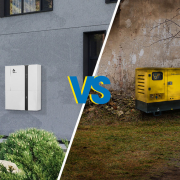 Solar Battery Group
Solar Battery Group Solar Battery Group
Solar Battery Group Solar Battery Group
Solar Battery Group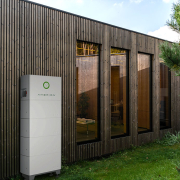 Solar Battery Group
Solar Battery Group

 Solar Battery Group
Solar Battery Group Solar Battery Group
Solar Battery Group